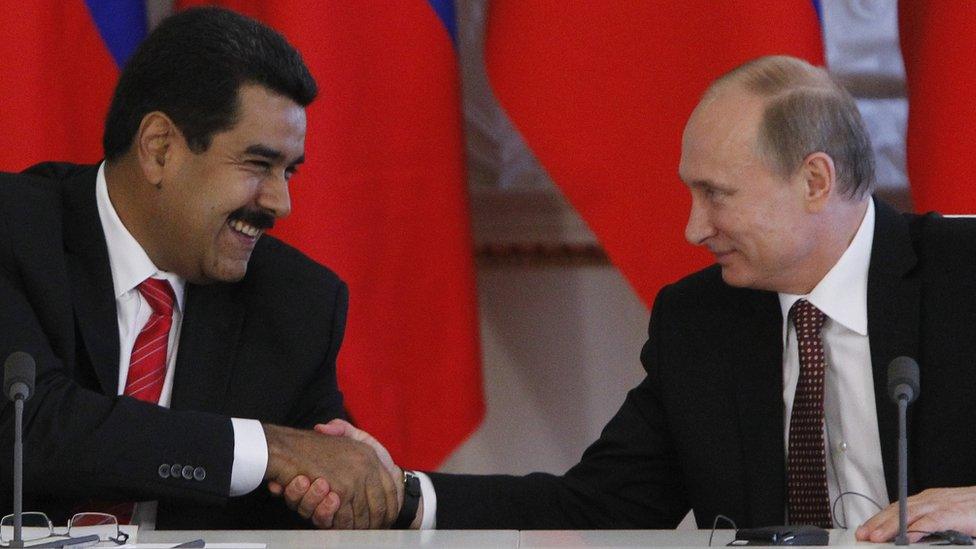Venezuela crisis: Juan Guaidó backed by Lima Group
- Published
Why Venezuela matters to the US... and vice versa
A group of Latin American countries and Canada has urged the Venezuelan military to support opposition leader Juan Guaidó as interim president.
In a statement, 11 of the 14 members of the Lima Group called for a change of power without the use of force and the urgent delivery of humanitarian aid.
Mr Guaidó has declared himself interim president and won support from major powers including the US.
President Nicolás Maduro says he is the legitimate leader of Venezuela.
Mr Maduro, who has the backing of a number of countries including China and Russia, earlier warned that the country's deepening political crisis could spark civil war.
Mr Maduro was sworn in last month for a second term after disputed elections which many opposition leaders did not contest because they were in jail or boycotting them.
In response, Mr Guaidó, who is head of Venezuela's National Assembly, said the constitution allowed him to assume power temporarily when the president was deemed illegitimate.
How united is Latin America in its response?
The group issued a 17-point declaration,, external following a meeting in the Canadian capital, Ottawa.
The document says the governments of Argentina, Brazil, Canada, Chile, Colombia, Costa Rica, Guatemala, Honduras, Panama, Paraguay and Peru "reiterate their recognition and support for Juan Guaidó" as interim president of Venezuela.
The 11 group members also urged the world community "to take measures to prevent the Maduro regime from conducting financial and trade transactions abroad, from having access to Venezuela's international assets and from doing business in oil, gold and other assets".
However, three members of the Lima Group - Guyana, Mexico and St Lucia - did not back the declaration.
The Lima Group was set up in 2017 with the aim of helping to find a peaceful solution to the Venezuela crisis.
Could there be war?
Asked on Spanish television if the crisis in Venezuela could lead to civil war, Mr Maduro said on Monday that "no-one could answer that question with certainty".
"Everything depends on the level of madness and aggressiveness of the northern empire [the US] and its Western allies.
"We ask that nobody intervenes in our internal affairs... and we prepare ourselves to defend our country."
The US has said military invention remains an "option". , external
Who is really in charge in Venezuela?
But in a speech on Monday, Mr Guaidó said: "There is no possibility of a civil war in Venezuela, it is a Maduro invention."
He also accused the Maduro government of trying to move up to $1.2bn (£900m) in public funds to Uruguay, but did not offer any evidence.
Why does Venezuela matter?
At least 17 EU countries have officially recognised Mr Guaidó as interim president of Venezuela.
It follows the rejection of a deadline set by the UK, France, Germany, Spain and others for President Maduro to call new elections.
Other EU nations, such as Greece and Ireland, have called for fresh elections but stopped short of recognising Mr Guaidó.
Mr Maduro retains powerful allies, most notably China and Russia, who has accused EU countries of interfering in Venezuela's affairs and attempting to "legitimise usurped power".
The Venezuelan president also retains the crucial support of the army.
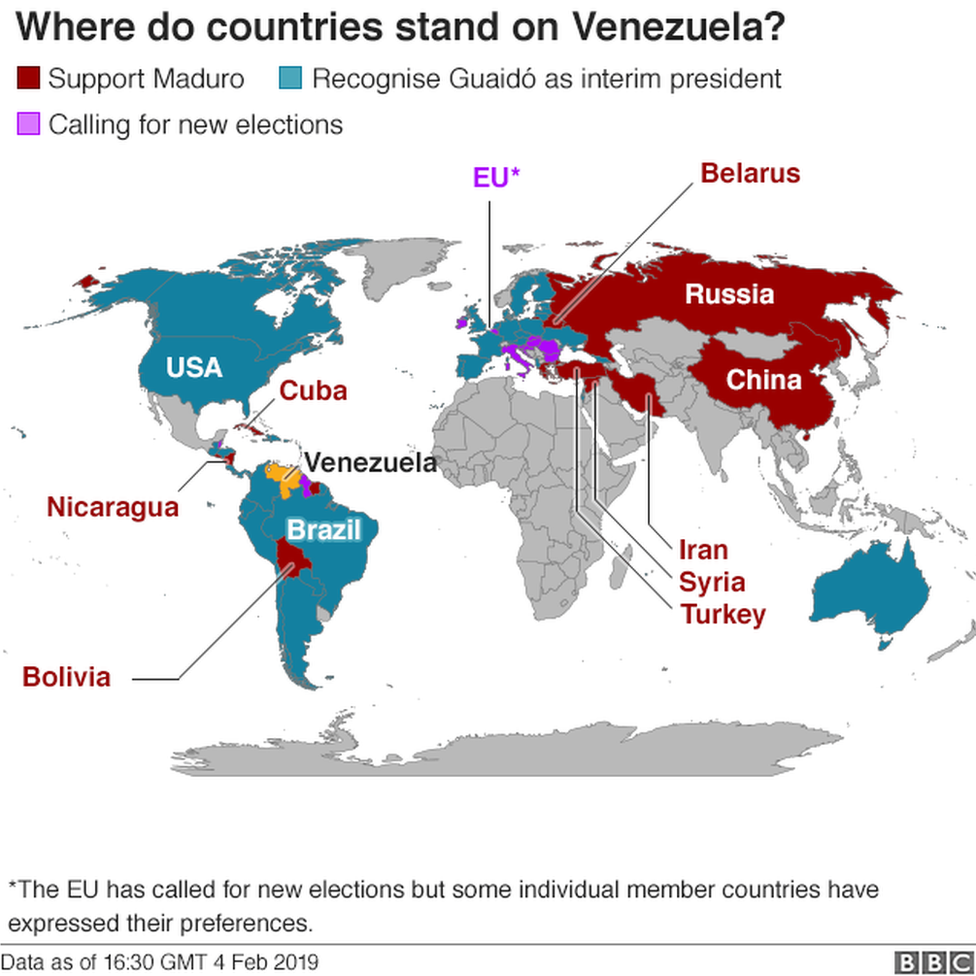


What is the background?
Mr Maduro, who took office in 2013 after the death of Hugo Chavez, has been condemned for alleged human rights abuses and for his handling of the economy.
There are severe shortages of basic items such as medicine and food, and an inflation rate that last year saw prices doubling every 19 days on average.
Many people have been voting with their feet and leaving Venezuela.
According to United Nations figures, three million Venezuelans have left the country since 2014 when the economic crisis started to bite.
- Published28 January 2019
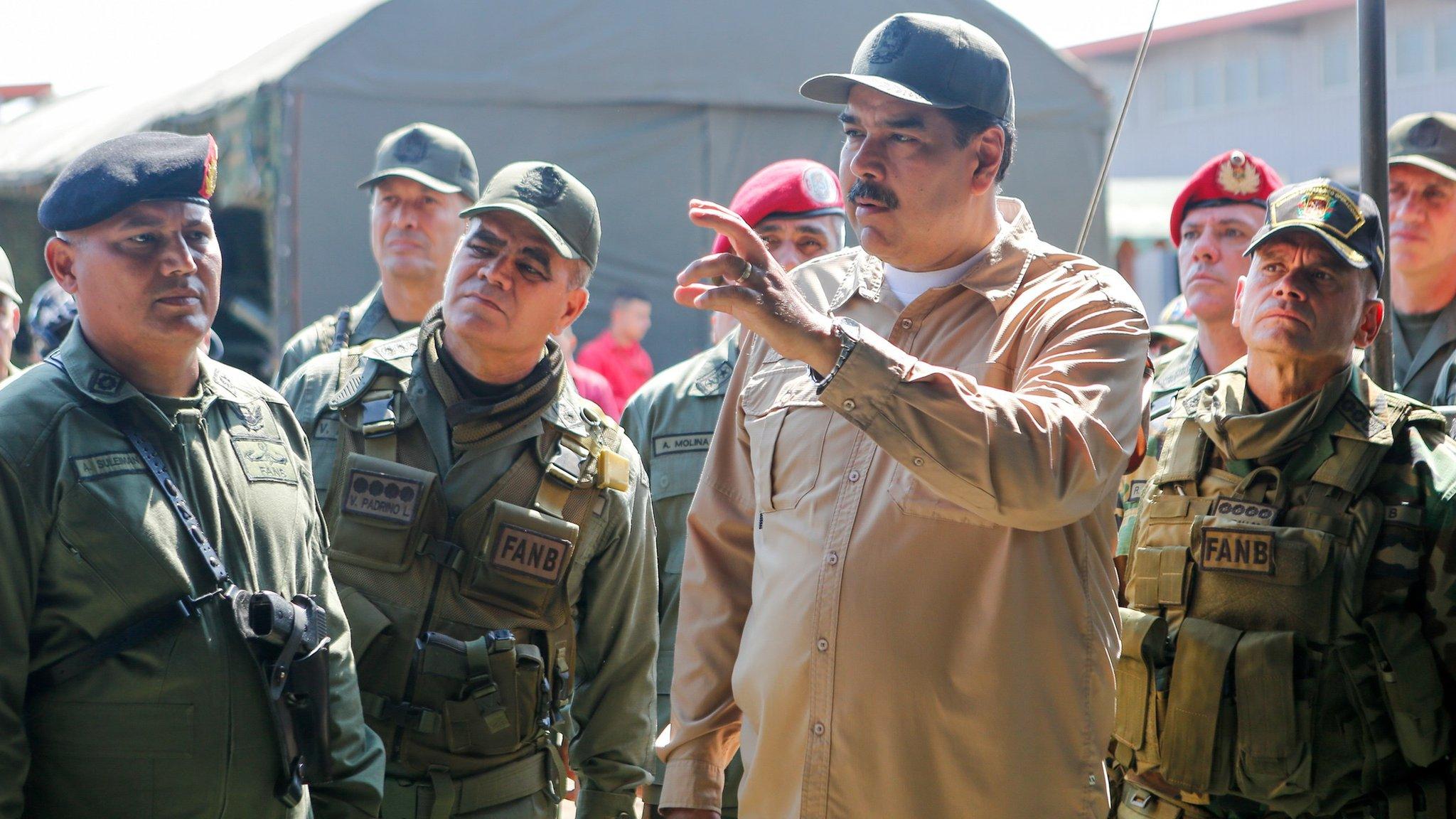
- Published2 February 2019
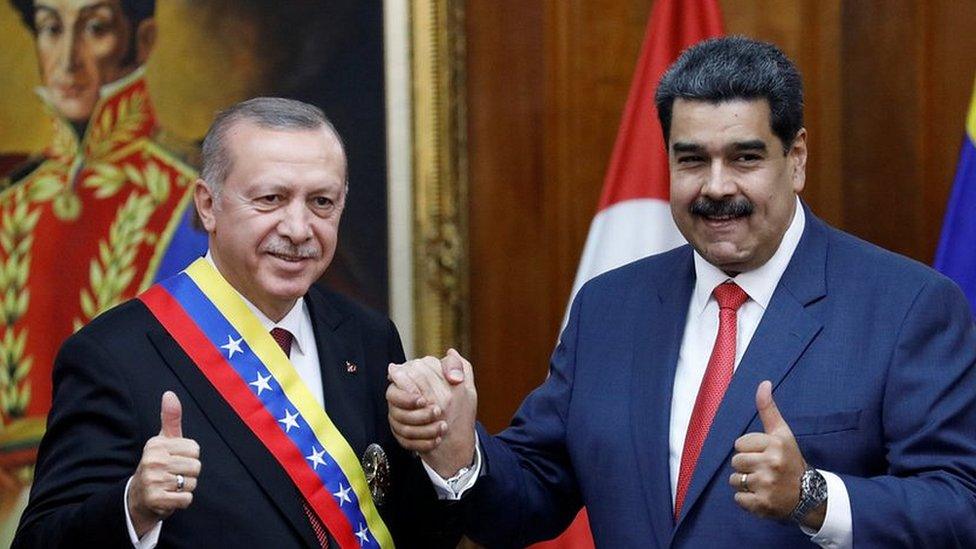
- Published29 January 2019
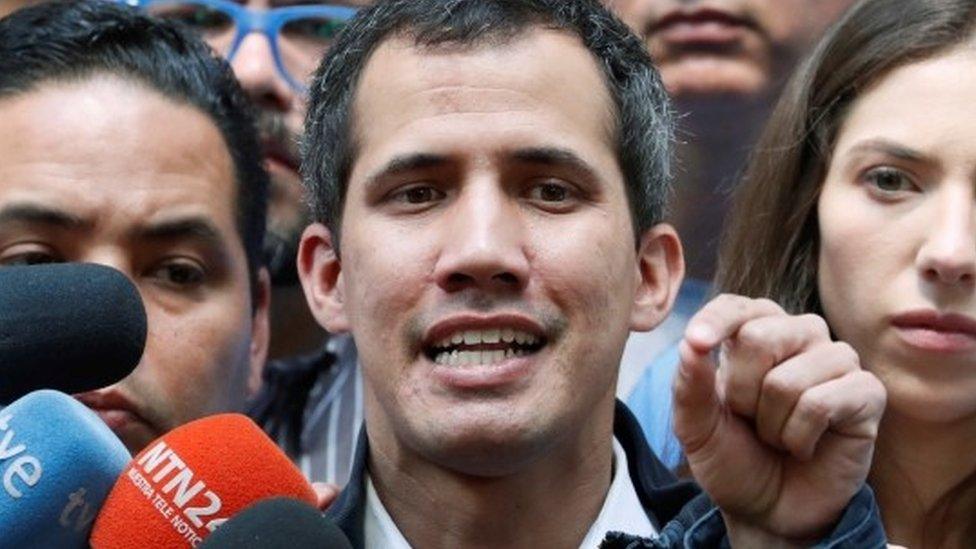
- Published25 January 2019
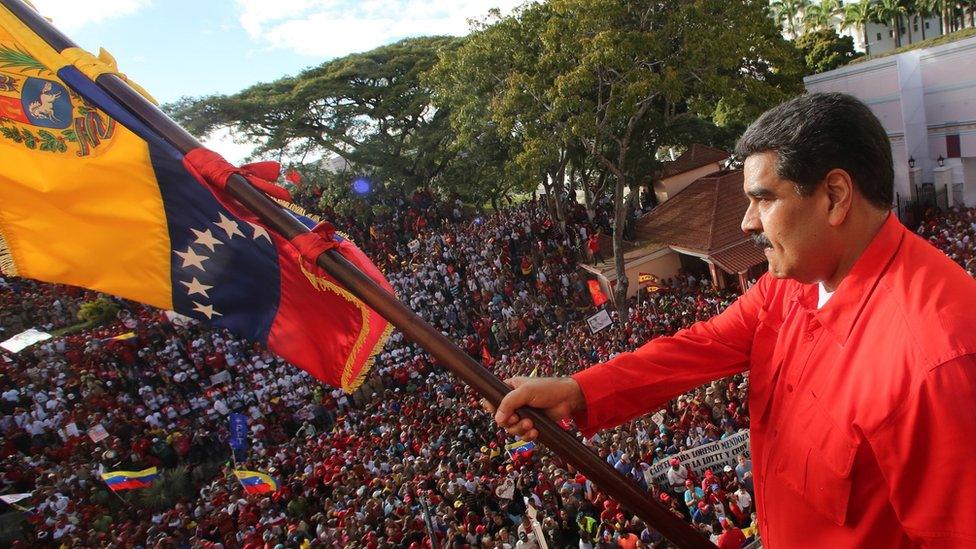
- Published5 February 2019
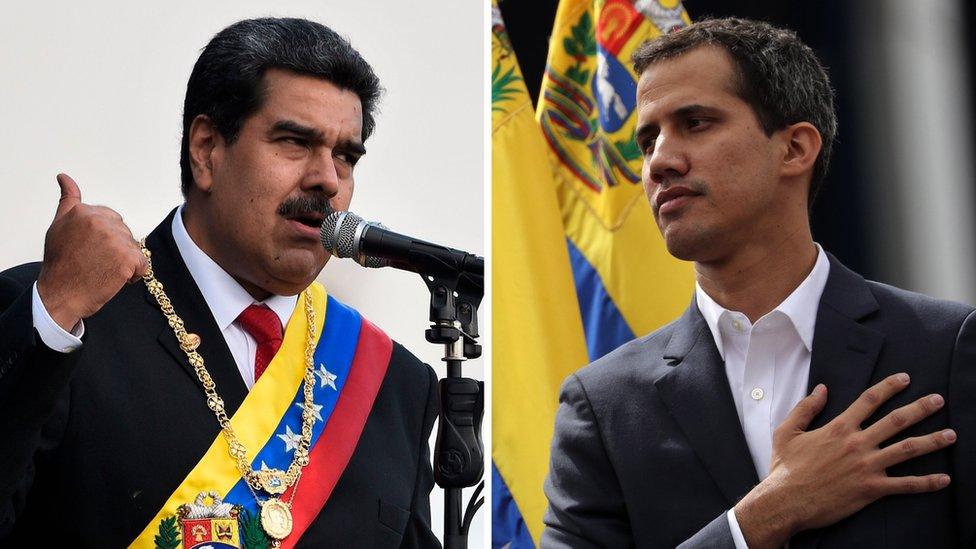
- Published4 February 2019
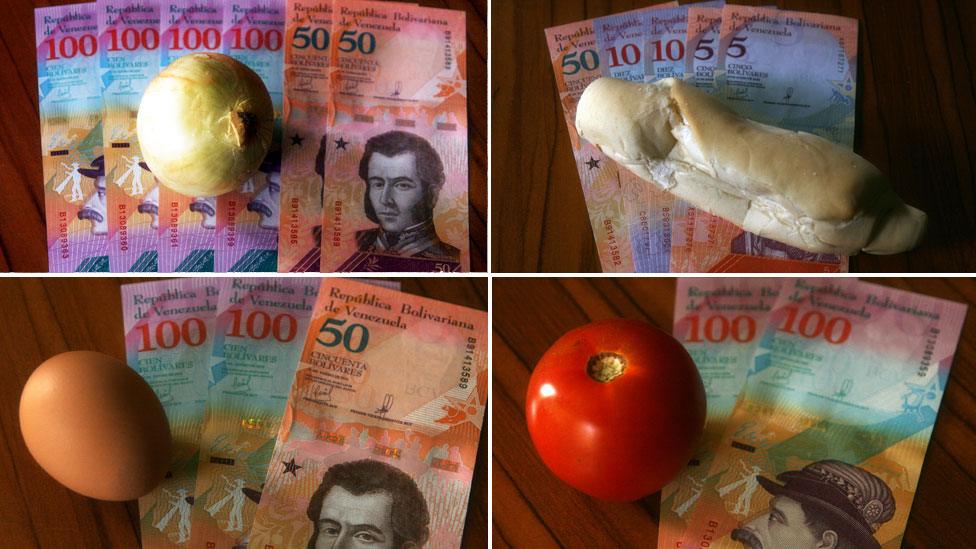
- Published1 February 2019
